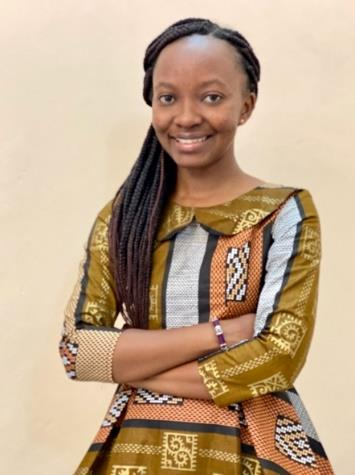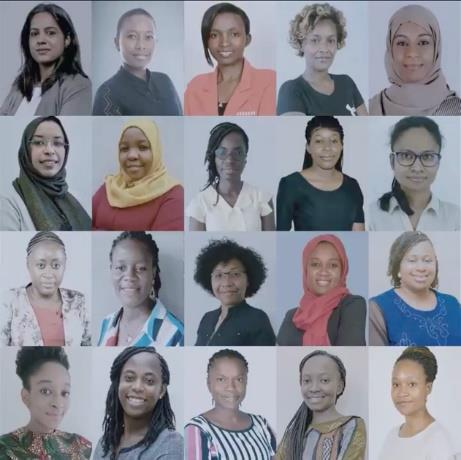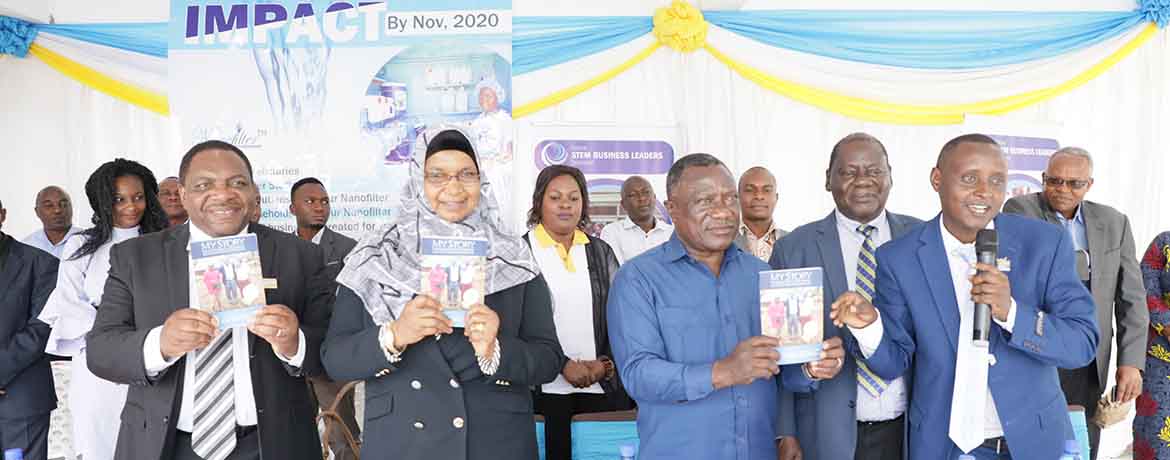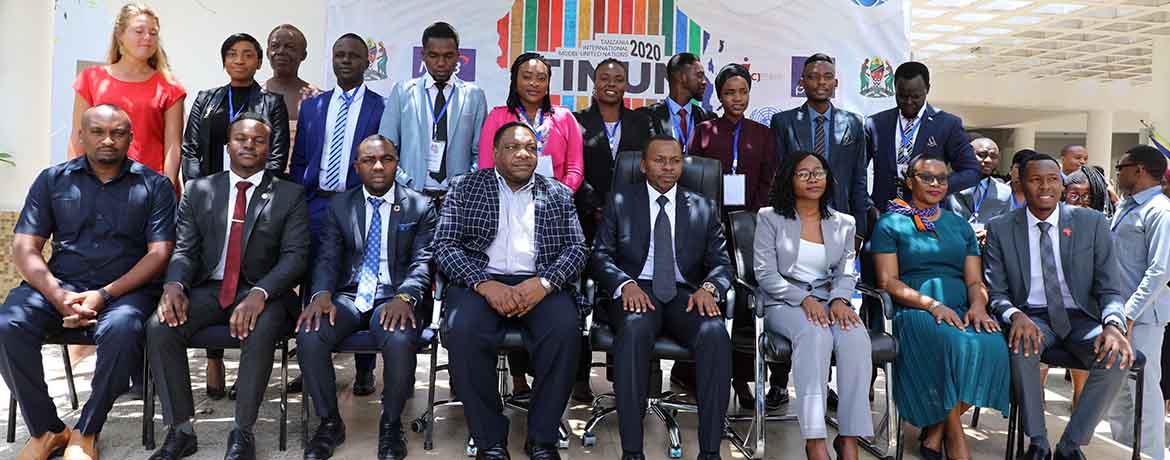On 03rd December 2020, host Hon. Ambassador of the United States of America to Tanzania Hon. Donald J. Wright visited the Nelson Mandela African Institution of Science and Technology (NM-AIST). Ambassador Donald wanted to familiarize with the institution particularly the progress of the Bush meat Project which is a capacity building project intended to assess Global Health Risks Associated with Bush meat Consumption in Tanzania funded by the Defense Threat Reduction Agency (DTRA) of USA amounting to $2.5M for three years from.
In his address, Ambassador Wright remarked “I am grateful for the good job so far! Most of you don't know my background but actually I am an American Doctor, so I truly understand what you say. In fact one health especially Zoonotic Diseases field is one of the important areas that needs rigorous research, and as you pointed out, COVIT 19 is a good example that poses such a great need for continuous research is the area. I appreciate the good job you are doing in terms of partnerships and collaborations that are geared at solving real life challenges to the community. It is really a good job worth commending.
The Bush meat project was led by Prof. Joram Buza (NM-AIST) and Prof. Vivek Kapur (Pennsylvania State University, USA). Other partner Institutions include: Sokoine University of Agriculture (SUA), the National Health Laboratory, BecA-ILRI hub, TAWIRI, TANAPA, Lincoln Park Zoo, USA. After a brief overview Ambassador D. J. Write expressed his heart field appreciation to the project team and institutions for a job well done.
The project aimed at investigating the global health hazards associated with consumption of bush meat, by focusing on three bio threats; Bacillus anthracis which cause anthrax, Brucella spp. which cause Brucellosis and Coxiella burnetti which cause Q-fever. The research confirmed presence of nucleic acid signatures of the three pathogens in bush meat collected from Serengeti, Ruaha and Selous Ecosystem. Details of the findings can be found in the following publications:
- Katani et al, (2019). Microbial Diversity in Bushmeat Samples Recovered from the Serengeti Ecosystem in Tanzania. Nature Scientific Reports volume 9, Article number: 18086
- Buza et al., 2019. iMAP: an integrated bioinformatics and visualization pipeline for microbiome data analysis. BMC Bioinformatics 20: 374. https://doi.org/10.1186/s12859-019-2965-4
- Schilling, M et al., (2019). Molecular species identification of bushmeat recovered from the Serengeti ecosystem in Tanzania. PLoS ONE 15(9): e0237590.
- Katani et al., 2020. Identification of B. anthracis, brucella spp., and Coxiella spp. DNA signatures in bushmeat. Nature Scientific Reports (submitted).
In his welcoming note, the Vice Chancellor of the NM-AIST, Prof. Emmanuel J. Luoga thanked the Government of USA for supporting to Tanzania research through various grants. He also extended his gratitude DTRA for funding the bush meat project and finally thanked US partner institutions for their continued support in terms of strengthening research and innovations at the NM-AIST.
Professor Luoga highlighted that the NM-AIST is a Pan-African Postgraduate, Science based University that was initiated in 2009 and started admitting students in 2011. Having such support is very important in order to live the intended dream. Currently the University has a total of 500 students and 210 staff. The University has 4 Schools and 3 Centers of Excellence where most academic affairs including research and Innovation are conducted. These Schools are;
- Life Science and Bio-Engineering (LiSBE)
- Computational and communication Science and Engineering (CoCSE)
- Material, Energy, Water and Environmental Science (MEWES)
- Business Studies and Humanities (BuSH)
- and details of the programmes are found on the website: www.nm-aist.ac.tz
In addressing the issue of Research and Innovations, the University has various partners from various parts of the world including the United States of America (USA) the list bellow shows some partners from USA as itemized below.
| S/N | Project Name/Title | Collaborating University/Institution | Project duration (Start and End date) | Funding Agency |
|---|---|---|---|---|
| 1 | Project for Enhancing the Health and Productivity of Livestock (PEPHL)e | Penn State and Washington Universities | Nov. 2015 to Nov. 2019 | Bill &Melinda Gates Foundation |
| 2 | Trial to establish causal linkage between Mycotoxins exposure and child stunting (Mycotoxins Mitigation Trial-MMT) | Cornel University | June 2017 to June 2022 | Bill &Melinda Gates Foundation |
| 3 | Singida Nutrition and Agro ecological Project (SNAP) | Cornel University | Nov. 2015 to Nov. 2019 | McKnight Foundation |
| 4 | Bush Meat | Pen state University | Nov 2016 to Nov. 2019 | Defense Threat Reduction Agency (DTRA) |
| 5 | Raising crop response: Bidirectional learning to catalyze sustainable Intensification at multiple scales | Washington State University | Oct. 2015 to Sept. 2019 | USAID |
| 6 | Strengthening African Food Processors to Reduce Losses (SAP). | Purdue University | August 2018 to February 2021 | Rockefeller Foundation |
| 7 | Training, production and testing of high quality face shields and face masks (NP95) for COVID-19 protection | Worcester Polytechnic Institute | June 2020 To date | Worcester Polytechnic Institute (WPI) |
| 8 | Joint USA-Africa Materials Institute. A summer school for graduate and Post-doc students between USA and Eastern Africa in Materials and Energy Science and Engineering. | Northwestern University, Columbia University | Since 2012 to date (Bi annual event) | NSF |
The University extends heartfelt appreciations to the Government of the USA for collaboration and funding of research projects as shown on table 1 above. It is our sincere hope that this collaboration will be extended in future for the benefit of the two countries,
On behalf of partners Project Principle investigator at the NM-AIST, Prof. Joram Buza thanked the Ambassador Donald J. Writ for visiting the NM-AIST and particularly the Bush Meat project. He explained the importance of more funding in order to help the team work on the questions that rose after the project outputs.
Prof. Buza added that, the Bush meat project was an initial exploratory research where we detected nucleic acid signatures of important pathogens; more research needed to obtain details on risk factors and diseases dynamics in wildlife and people. The project ended in March 2019 but we have submitted new project proposal for consideration. Prof. Joram Buza revealed.
Finally the Ambassador Donald J. Wright visited the laboratory complex to see how bush meat project was undertaken. H appreciated the modern laboratory facilities which were bought under same funding and promised that the government of USA and its institutions will continue supporting such life changing projects in order to improve lives on many Tanzanian.

The Ambassador of the United States of America to Tanzania, Hon. Dr. Donald J. Write Visiting the Bushmeat project Laboratory
The story about Gongali Model Co. Ltd originates from a boy called Askwar Hilonga from a humble beginning in a village called Gongali, Karatu district in Arusha, Tanzania back in 1976. In the course of self-determination, finally Hilonga made it up to a PhD in Chemical Engineering at Hanyang University - South Korea (2010). Since February 2011 Hilonga joined the Faculty team at Nelson Mandela African Institution of Science and Technology (NM-AIST), a public University in Arusha Tanzania with a mandate to serve the SSA that envisions generating solutions to challenges which confronts the Society and Industry. The research and innovation activities at the NM-AIST are carried at Masters and PhD level in Science, Engineering, Technology and Innovation (SETI) across Sub Saharan Africa. Recently Hilonga was promoted to a Professor after numerous achievements in terms of research and life changing innovative solutions to his community. Hilongawas eager to utilize immense resources at the NM-AIST to embrace the “motto"of “Academia for Society and Industry” immediately after joining the faculty. He started looking at a challenge of waterborne diseases from which his community and of course many of Africancountries suffer.
After my studies I started questioning my ethical “what does my PhD mean to my community in Tanzania”? Thereafter I came up with a Low Cost Nano Filter that uses nano technology to purify drinking water. I chose to address the challenge of waterborne diseases since it was one of the most confronting challenges to my community as many people suffer from cholera, typhoid, fluoride and many others. Prof. Hilonga explained.
Hilonga’s star started beaming up in 2015 when he won an award of the Most Talented Young African Entrepreneur of the Royal Academy of Engineering. This opened up many more doors for his innovation including a winner of Pitch@Palace Africa, Pitch@Palace Global, Sponsored bythe British Royal Academy of Engineering, the HDIF, Ministry of Health Community development, Gender, Elderly and Children of Tanzania, and WHO Health Prize called The United Arab Emirates Health Foundation Prize 2019, As arecognition for his innovation of a “Low-Cost drinking Water Filter branded as Nanofilter®
The 10 years celebrations event was officiated by the Regional Commissioner for Arusha, Hon. Iddi Hassan Kimanta, who was very much impressed by the ground breaking innovations put out by Prof. Hilonga including heavy-duty Water filters for secondary schools and hospitals, household water stations and other public stations that allows access to safe water at all levels in the community. He promised to find a way on how the stations could be distributed to secondary schools in Arusha in order to rescue school going children from water borne diseases. The event featured an official launch of Future STEM Business Leaders programme which is run by COSTED under the organization of University of Dar Es Salam sponsored by the International Centre for Theoretical Physics (ICTP) and was presented by Dr. Salha Mohamed Kassim on behalf of the Director-general of Tanzania Commission for Science and Technology COSTECH. Prof. Amos Nungu. 15 secondary schools in Arusha will benefit from the programme as part of project pilot study in the region.
Talking to the participants, The Vice Chancellor of the NM-AIST Prof. Emmanuel J. Luoga, expressed his heartiest congratulations to Prof. Hilonga for his enthusiasm to live the motto of the NM-AIST, he added that, the NM-AIST goal is powered by the late Nelson Mandela who wished to see Africa producing their own scientists and engineers who would research to find out solutions to the challenges of their communities. It has been a culture of the NM-AIST to work hard in order to live Nelson Mandela’s Legacy and through that many innovations are being molded, the plan is to have thousands of innovators like Hilonga and even more.
Professor Hilonga is one among many innovators at our University, we train Masters and PhD in SETI level only and every student must come up with an innovative research designed to solve a particular challenge. We have been doing that and of recently we have initiated an innovation centre through which our students and faculties are being incubated in order to ensure that faculties and students with promising solutions meets with business captains for mentoring and up scaling up their prototypes for commercialization purposes. Said Prof. Emmanuel Luoga. Prof. Luoga was accompanied by Deputy Vice Chancellor Prof. Charles Lugomela, Dean of the School of Materials, Energy, Water and Environmental Sciences, Prof. Levocatus Machunda and other members of the NM-AIST community.
The celebrations included presentation of a 10 years Impact Reporthttps://bit.ly/ThirstForLife) that enumerated a number of achievements including serving more than 300,000 people with safe and clean drinking water in 10 regions of Tanzania and more branches in Kenya and Zambia. An inspiring and empowering Centre that grooms youngsters in entrepreneurship from various universities, colleges and R&D institutions. Finally through a virtual speech, Ms. Veronique Bourbeau, the ultra-endurance athlete had a word to address Africa and the world as she prepares to begin her Nanofilter enabled, record-breaking trans-African run from Egypt (Alexandria) to South Africa through which she will be spreading the good news about African own innovation called nonfilter for Africans and this is one of the strategies to reach 5Million people served by Nano filter by 2022.
On 30th September 2020 a delegation from the Bank of Tanzania (BoT) visited the NM-AIST as part of familiarization with the activities and achievements of the institution after a week-long legal-related training in Arusha. The team was able to meet the Vice Chancellor, Prof. Emmanuel J. Luoga, and were able to discuss a number of issues including the upcoming Forensic language short course, a tailor-made course to the financial institution and Law enforcers of the government especially in this digital era, and some achievements and challenges. After a Courtesy to the Vice Chancellor's office, the delegation had a brief campus tour to the laboratories, the three Centres of Excellency namely: The Africa Centre for Research, Agricultural Advancement, Teaching Excellence and Sustainability (CREATES), Water Infrastructure and Sustainable Energy Futures (WISE – Futures) The Centre of Excellence for ICT in East Africa (CENIT@EA) where they were briefed on various activities which are undertaken by the centres including research and innovation activities and ultimately products and solutions generated out of research by students and faculty members.

On behalf of the Delegation, Mr. Serili Denis, the assistant Manager Legal Secretariat Services at BoT expressed his appreciation to the Management of the NM-AIST for carrying out such a vigour mission of transforming Higher Learning Institution to a hub of industrialization through its cutting edge innovations. They were able to see products like Vuruga bio-peptide, a nutritional supplement called Nutrano, Omega 3DHASuperfood, and Anti Plagiarism system of which soon they will undergo mass production/distribution. Members purchased some of the products and later on, they visited the Incubation centre and got a brief overview of its role in taking research and innovation outputs to the market.
Dr. Neema Mduma, a faculty member of the Nelson Mandela African Institution of Science and Technology (NM-AIST), has been declared one among 20 Young Talents in Sub-Saharan Africa for the L’Oréal-UNESCO for Women in Science International Awards. Dr. Neema’s award is a recognition for her research titled: Data Driven Approach for Predicting Student Dropout in Secondary Schools. In this research, Neema and supervisors (Dr. Khamisi Kalegele and Dr. Dina Machuve) under the sponsorship of AfDB developed a Machine Learning web-based application called “BakiShule” to allow education stakeholders to easily predict and identify students who are at risk of dropping out of school for early intervention.


The selection was based on the quality of the application, scientific excellence in research and ability to communicate and promote science to young people. The 20 Young Talents were chosen among 330 applications by the jury of eminent scientists led by Prof. Nelson Torto, Executive Director of African Academy of Sciences (AAS). To support Young Talents from Sub-Saharan Africa, the Foundation L’Oré al-UNESCO will offer grants to winners, help them continue with their scientific work, with allocations of €10,000 for doctoral students and €15,000 for post-doctoral students. It is another milestone under the NM-AIST belt in embracing the Global Sustainable Goals of promoting women education especially in science field for sustainable development.
NM-AIST is honored to host the Deputy Permanent Secretary, Ministry of Foreign affairs and the Eas African Cooperations, Dr. Mwinyi Talib Haji during the Tanzania International Model United Nations (TIMUN 2020)
The event has gathered 180participants from Tanzania, Burundi, Kenya, Cameroon, Nigeria and UK. under the umbrella of Youth of the United Nations Association (YUNA) set to have their meeting at the NM-AIST from today 29th September to the 2nd of October 2020. During his introductory speech, the Vice Chancellor of the NM-AIST highlighted that through its teaching, research, and innovation activities NM-AIST feed to 12 of the Global Sustainable Development Goals including ending hunger, promoting self-employment through turning innovations into viable business products and services, sustainable energy, and supporting industrialization. Youth were asked to tap on the opportunity to study at the NM-AIST in order to have a remarkable impact on the SDGs.





